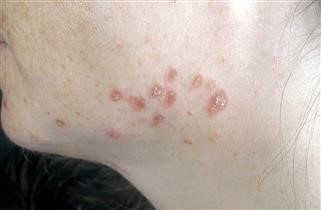The Infertility Organization
Questions to Ask Your Infertility Doctor
We are the top source for complete information and resources for Questions to Ask Your Infertility Doctor on the Internet.
Isolated FSH deficiency This is a very rare cause of infertility. Hormone imbalances Infertility can result from disorders of the testicles themselves or an abnormality affecting other hormonal systems including the hypothalamus, pituitary, thyroid and adrenal glands. If a couple has never produced a pregnancy, it is defined as primary infertility. The rising number of obese individuals may be due in part to an energy-rich diet as well as insufficient physical exercise. In addition to other potential health risks, obesity can have a significant impact on male and female fertility. Omitting unnecessary investigations, in particular couples, could reduce total cost of their infertility management without compromising their success rate. Dr Freundl from the University of Heidelberg suggests that tests which use LH as a reference often lack sensitivity and specificity.[13] Classification[edit] The World Health Organization criteria for classification of anovulation include the determination of oligomenorrhea (menstrual cycle >35 days) or amenorrea (menstrual cycle > 6 months) in combination with concentration of prolactin, follicle stimulating hormone (FSH) and estradiol (E2).
The Male-specific Region of the Human Y Chromsome is a Mosaic of Discrete Sequence Classes. (PDF, 754 KB) Nature, 2003. Women who are at risk, including those on a vegan diet, should ask the doctor about supplements. For unknown reasons, as women age, egg numbers decrease at a rapid rate. Your doctor may suggest that you take gonadotropin if you have unexplained infertility or when other kinds of treatment haven't helped you get pregnant. Fimbrial phimosis and periadnexal disease can be treated with laparoscopy. [134, 135, 136, 137, 138] The pregnancy rate after salpingolysis is 50-60% during the first year after treatment.
Below are Some Even more Details on Questions to Ask Your Infertility Doctor

Below are Some Even more Information on Questions to Ask Your Infertility Doctor
The mature oocytes are put onto a special culture medium and stored in the incubator. M. genitalium infection is associated with increased risk of infertility.[25][26] Genetic[edit] A Robertsonian translocation in either partner may cause recurrent spontaneous abortions or complete infertility.[citation needed] Mutations to NR5A1 gene encoding Steroidogenic Factor-1 (SF-1) have been found in a small subset of men with non-obstructive male factor infertility where the cause is unknown. About 25% of all infertility is caused by a sperm defect and 40-50% of infertility cases have a sperm defect as the main cause, or a contributing cause. Intrauterine insemination (IUI): At the time of ovulation, a fine catheter is inserted through the cervix into the uterus to place a sperm sample directly into the uterus. In 1978, the first baby was born as a result of IVF.
Below are Some More Resources on Questions Regarding Infertility
7) Endometriosis: Endometriosis is a condition whereby cells very similar to the ones lining the uterine cavity, or endometrium, are found outside the uterine cavity. The restricted vision, the difficulty in handling of the instruments (new hand-eye coordination skills are needed), the lack of tactile perception, and the limited working area are factors adding to the technical complexity of this surgical approach. 0.[44] Environmental factors Toxins such as glues, volatile organic solvents or silicones, physical agents, chemical dusts, and pesticides.[45][46] Tobacco smokers are 60% more likely to be infertile than non-smokers.[47] German scientists have reported that a virus called adeno-associated virus might have a role in male infertility,[48] though it is otherwise not harmful.[49] Other diseases such as chlamydia, and gonorrhea can also cause infertility, due to internal scarring (fallopian tube obstruction).[50][51][52] Alimentary habits[53] Obesity: The obesity epidemic has recently become is a serious issue, particularly in industrialized nations. If endometriosis is found, it can be surgically removed by various methods, and its removal may lead to a decrease in pain as well as improvement in the ability to conceive naturally.
More Information Around Questions to Ask Your Infertility Doctor
The idea is that for women beyond age 35, every month counts and if made to wait another six months to prove the necessity of medical intervention, the problem could become worse. In closed social groups, a degree of rejection (or a sense of being rejected by the couple) may cause considerable anxiety and disappointment. 30–32 Other treatment options include antiestrogens and gonadotropin therapy, which showed a trend toward increased live birth rates in a Cochrane review. Especially in men, psychological explanations should be considered as they are frequently the cause of sexual dysfunctions. Many more couples, however, experience involuntary childlessness for at least one year: estimates range from 12% to 28%.[4] Male infertility is responsible for 20–30% of infertility cases, while 20–35% are due to female infertility, and 25–40% are due to combined problems in both parts.[2][5] In 10–20% of cases, no cause is found.[5] The most common cause of female infertility is ovulatory problems, which generally manifest themselves by sparse or absent menstrual periods.[6] Male infertility is most commonly due to deficiencies in the semen, and semen quality is used as a surrogate measure of male fecundity.[7] Women who are fertile experience a natural period of fertility before and during ovulation, and they are naturally infertile for the rest of the menstrual cycle.
Previous Next
See also
Infertility Doctors in Durgapur
Infertility Doctors in Kerala
Infertility Clinic Riyadh